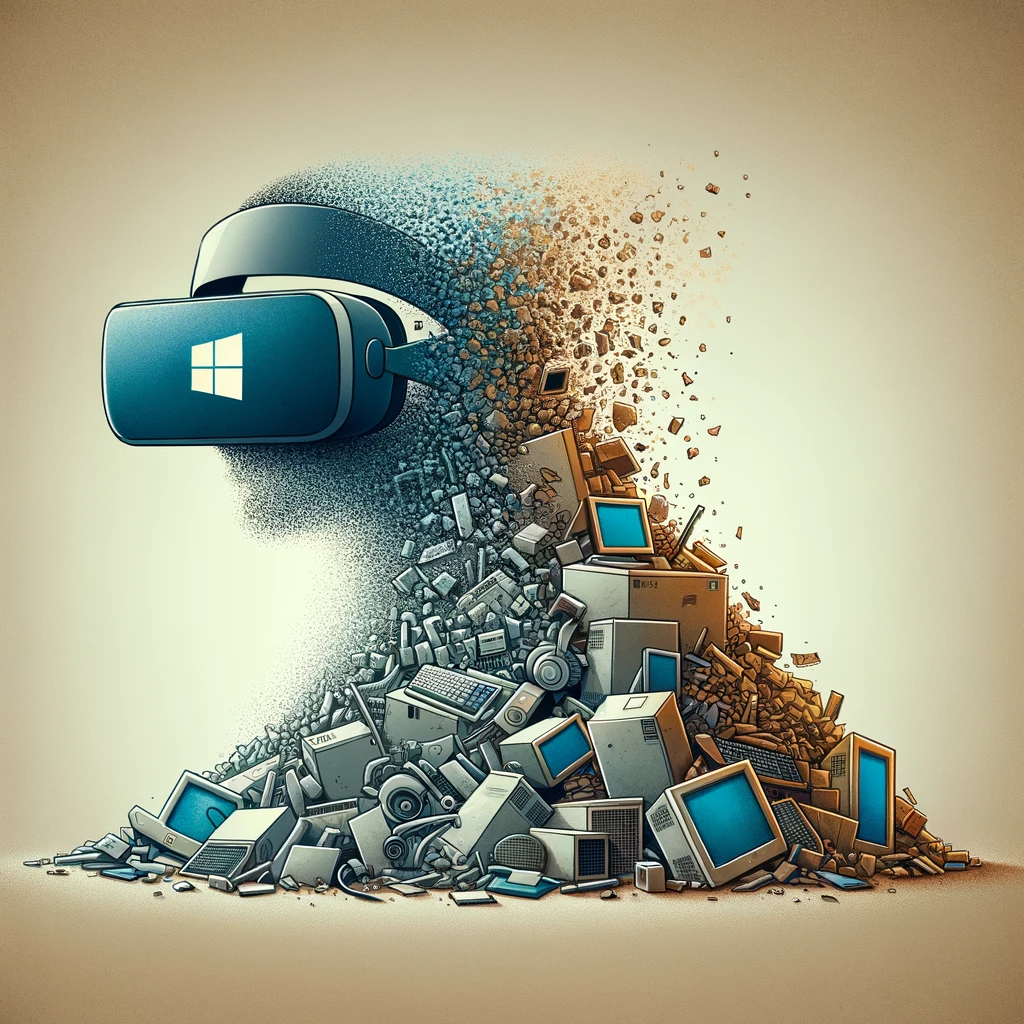Microsoft’s recent decision to discontinue its mixed reality feature in Windows, initially launched in 2017, signifies a pivotal shift in its technological direction. This move, denoted as a deprecation of the Windows mixed reality, has raised questions about the future of augmented and virtual reality in personal computing. Mixed reality, blending augmented and virtual elements, had once been touted as a frontier for Microsoft, offering users an immersive experience with compatible VR headsets. However, with the abandonment of this feature and the rumored shelving of the HoloLens 3 project, Microsoft appears to be reevaluating its position in this sector.

Simultaneously, Microsoft’s announcement to cease support for Windows 10 by October 2025 has triggered concerns about environmental sustainability. Canalys Research highlights a startling potential outcome: approximately 240 million personal computers becoming obsolete, potentially adding a staggering 480 million kilograms of e-waste to landfills. This weight is equivalent to around 320,000 cars, underlining the magnitude of the environmental challenge.
Although many of these PCs could remain operational beyond the end of OS support, the lack of security updates may diminish their market demand. Consequently, Microsoft’s decision could inadvertently accelerate the disposal of older PCs, exacerbating the e-waste crisis. The company’s plan to offer extended security updates for Windows 10 at an undisclosed annual price further complicates this scenario. If history is any indicator, the cost of these updates could prompt users to opt for newer PCs instead, increasing the number of older devices heading for scrap.
Amid these developments, Microsoft is reportedly gearing up for its next-generation operating system, speculated to integrate advanced artificial intelligence technology. This innovation could potentially rejuvenate the sluggish PC market, offering a glimmer of hope amidst the looming environmental concerns.
However, it’s not all bleak on the environmental front. Recycling technologies present a silver lining. Noveon Magnetics highlights the potential of repurposing hard drives from personal computers and data servers. These drives can be recycled to extract materials for electric vehicle motors and renewable power generation, offering a sustainable alternative to traditional disposal methods. Moreover, battery recycling firms like Redwood Materials emphasize the near-infinite recyclability of batteries to recover essential metals such as lithium and cobalt.
In conclusion, Microsoft’s strategic shifts in technology, from phasing out mixed reality features to ending Windows 10 support, bring to the fore critical environmental considerations. The potential increase in e-waste challenges the tech industry to adopt more sustainable practices. The emerging recycling technologies provide a hopeful pathway, suggesting that with innovation and responsible management, the tech industry can navigate its environmental crossroads effectively.










